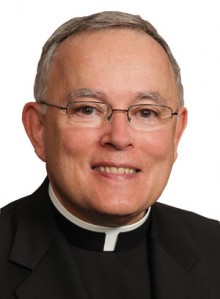I had the pleasure on Thursday, October 15, of sharing some thoughts with the fine French Catholic magazine Famille Chretienne. The reporter did his job well. He went straight to the heart of a key issue in this year’s synod discussions – the nature of personal conscience. To borrow directly from the interview:
Famille Chretienne: Some think that the Church should leave more space for personal conscience. That would help the faithful to overcome the “obstacles” — so they say — which the Church creates for them on the question of birth control or the sacraments (Reconciliation and Communion) for divorced and remarried couples. What is your opinion?
Archbishop Chaput: Each of us has the duty to follow his or her conscience. But conscience doesn’t exist in a vacuum, and it’s more than a matter of personal opinion or preference. The Church is not a collection of sovereign individuals. We’re a community, a family, organized around the person of Jesus Christ and his Gospel. We have an obligation to form our consciences in the truth. That means we need to allow ourselves to be guided by the wisdom and teaching of the Church that Jesus founded.
If my conscience disagrees with the guidance of the Church on a matter of moral substance, it’s probably not the Church that is wrong. Human beings – all of us – are very adroit at making excuses for what we want to do, whether it’s sinful or not.
(The full English language version of the interview can be found here.)
The many English Martyrs under Henry VIII and Elizabeth I did not give their lives defending “personal conscience.” That idea would have been foreign to them, as the record of history clearly shows. They died because they understood that the Catholic Church teaches the truth, and they couldn’t repudiate the Church or the truth she teaches without ruining their own integrity.
[hotblock]
The issue for them was truth, not self-will — God’s truth that both binds and liberates everyone, everywhere; not the modern idea of a personal intellect that creates its own version of right and wrong. For today’s Christians who take their discipleship seriously, learning and living the truth remains the same concern.
This year’s synod of bishops, devoted to “the vocation and mission of the family in the modern world,” naturally covers a wide range of issues. Some are more pressing, for more people, than others. Throughout his recent visit to Philadelphia, Pope Francis showed great sensitivity to the beauty and challenges of everyday family life, and people rightly responded with gratitude and enthusiasm.
We need to pray that the synod’s final product will likewise offer support to the many millions of Christian families that defend new life; that welcome children; whose parents radiate joy with each other and fidelity to the Church; that love God and his Word; and that seek to bring others to Jesus Christ. These families are the bedrock on which all of Christian life and action rests. They need to be nourished as a first priority.
Other pastoral problems that touch on sexuality, marriage and the family – some of them tied to key matters of doctrine – also face the Church. We need to pray that the synod will address these issues prudently, remembering two things: Truth without love is bitter and can drive the wounded away; and “love” without truth isn’t love at all, but a comfortable form of lying.
There can be no real mercy, since mercy is an expression of love, without first grounding it in the truth about God’s will for humanity. His will includes marriage and the family. And the source for understanding his truth is God’s own Word and the Church his Son founded — not the mass media, and not even confused voices that should know better.
Blessed John Henry Newman, in his famous Letter to the Duke of Norfolk, noted that conscience is “the highest of all teachers, yet the least luminous.” Why? Because the sense of right and wrong, which is the first element in religious faith, is “so easily puzzled, obscured, perverted … so biased by pride and passion, so unsteady in its course.”
Christians belong to Jesus Christ, his Word and his Church. These are the sources of truth. We can only have the “joy of the Gospel” if we form our consciences in these.



Share this story